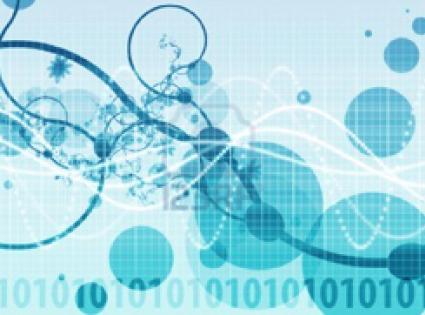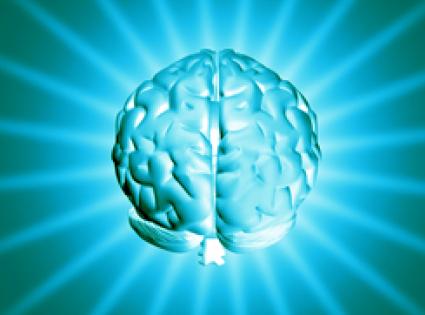Argumentation theory: prospects and problems
Course objectives
The main objectives of the course are to provide:
- The knowledge of the current situation in the theoretical field of argumentation studies.
- A training to develop reports on the main approaches, issues raised and lines of research in this field.
- The ability to take a position about a relevant problem on a motivated and justified critical basis.
Contents
The theory of argumentation is currently a field of multi- and interdisciplinary studies. Its focus is the argumentative discourse: a conversation in which we seek to account for something to someone and/or before some other, with the aim of achieving their understanding and gain their assent.
The subject of Argumentation theory: prospects and problems is intended to facilitate the access and transit, and eventually the domain of this broad and rough terrain. With this purpose, it offers a helpful map according to four "cardinal points" considered as thematic blocks
I. The current field of argumentation.
Its learning goal is to introduce students in this field of studies through the consideration of some basic assumptions and main current approaches. My assumptions are: (i) a capital notion of argumentative practice; (ii) three ontological constituents of argumentation: arguers as argumentative agents, arguing as procedure and process in some context and framework, and argument as a product.
The approaches are those corresponding to classical endogenous perspectives within the Argumentation Theory tradition (logic, dialectic, rhetoric), as well as the new exogenous approaches (from his pragmatic background and following his socio-institutional projections in the public sphere of discourse).
II. Good argument and its perspectives.
Its objective is to study the well-founded or accredited as solid arguments and, in general, the good argumentation in the light of the criteria and standards proposed by the three traditional perspectives on the field.
III. The fallacies and their problems of detection and treatment.
Its aim is to be in a certain way complementary to the earlier to deal with the discourse that passes, or you want to masquerade, by a good argument when in fact it is a pseudo-argument, or a failed and even fraudulent argument. Also in this case, the points of view and the criteria in this regard can be associated with the above perspectives.
IV. The new perspective socio-institutional of public discourse.
Its objective is to take charge of a new perspective on the speech that, without fail to take certain ancient roots, has been developed in the heat of various programs (for example, ethical, socio-institutional or political philosophy) concerned with paradigmatic issues, such as the collective deliberation, and with the health and rationality of the public discourse.
The discussion of these topics will run according to the following program content.
Program.
I. The current field of argumentation.
1. The revival of studies of argument in the second half of the twentieth century. 2. An overview of the field of argumentation.3. Assumptions and theoretical perspectives. A warning about perspectivism. 4. Arguers, arguing and argument.
II. The good argumentation and its prospects.
5. From a good argument to arguing well 6. The logical point of view on the sound argument. 7. The dialectical point of view of arguing well. 8. The rhetorical point of view about the good argumentative resources. Reasonableness and effectiveness in argumentative discourse.
III. The fallacies and their problems of detection and treatment.
9. Preliminary notions: fallacies, sophisms and paralogisms. 10. The logical perspective on the fallacies. 11. The dialectical perspective on the fallacies. 12. The rhetorical perspective about the fallacies.
IV The new social-institutional perspective on public discourse
13. The takeoff of the interest in the public sphere of discourse. 14. Mass media communication, persuasion and manipulation of the speech. 15. Deliberation as a paradigm.
Basic and complementary bibliography
Basic bibliography
* Luis Vega & Paula Olmos, Eds. (2011). Compendio de Lógica, Argumentación y Retórica. Madrid: Trotta, 20122nd.
* Frans H. van Eemeren et al. Eds. (2014). Handbook of Argumentation Theory. Dordrecht: Springer.
Complementary bibliography
- Luis Vega (2003). Si de argumentar se trata. Barcelona: Montesinos, 20072nd.
- Marianne Dury & Sophie Moirand, Eds. (2004). L'Argumentation aujourd'hui. Paris: Presses Sorbonne Nouvelle / (2008) La argumentación hoy. Barcelona: Montesinos.
- Luis Vega & Gerardo Bolado (2011). La argumentación en el discurso público. Santander: Ediciones del Parlamento de Cantabria.
- Luis Vega (2013), "La deliberación: un campo de prueba del discurso público". En Adrián Gimate-Welsh y Julieta Haidar (Eds.) La Argumentación. México: UAM- Iztapalapa; 123-152.
- Luis Vega (2013). La fauna de las falacias. Madrid: Editorial Trotta.
- Luis Vega (2015). Qué es argumentar y por qué hacerlo bien. Perspectivas contemporáneas en teoría de la argumentación. Lima/Bogotá: Editorial Palestra / Editorial Temis.
Skills
Basic Skills
BS6. To have a strong knowledge base that allows students to innovate in the development and/or implementation of ideas, especially for research purposes.
BS7. The ability to apply the knowledge they have acquired and their ability to solve problems in new or little known areas within wider (or multidisciplinary) contexts related to their field of study.
BS8. The ability to integrate knowledge and deal with the complexities of forming opinions based on incomplete or limited information, including reflections on social responsabilities and ethics.
BS9. The ability to clearly and unambiguously communicate conclusions and the knowledge and reasons behind them to specialized and non-specialized audiences.
BS10. Learning skills to carry out further studies in a self-directed and autonomous way.
General skills
GS1. Students should be able to produce readable, detailed and technically correct documents and research work that meets the current international standards for the disciplines.
Specific skills
SS1. The ability to identify traditional and current knowledge specific to the field of logic and philosophy of science, as well as the different trends of thought and tradition involved.
SS2. Mastery of the analytical tools provided by philosophy to facilitate the clear identification of the semantic, logical, epistemological, ontological, axiological and ethical factors that are present in science and technology.
SS3. The ability to assess disputes, considering and overviewing alternatives to decide upon the better justified and reasoned parts.
SS4. To be able to identify arguments as they appear in texts, dialogues and discussions, assessing their accuracy, acceptability and persuasiveness.
Teaching Methodology
- Theoretical education through classroom lectures, bibliographic suggestions and additional audiovisual material.
- Proposal of discussion topics and promotion of argumentive or metaargumentative interventions in this regard.
- Individual tasks and tutoring: supervision of course assignments and individual learning through available resources of the master program.
- Supervised final essays: studying the application of the revised ideas and theoretical perspectives to concrete cases or problems of argumentative practices, or reflecting on the theoretical and critical issues faced by those approaches.
Assessment and Weighting System
- Attendance and participation ..... 20 %
- Assignments and exercises ........ 40 %
- Final essay supervised ............... 40 %
Study time and individual work
- Total hours: 125.
- Total on-site (class room) lessons: 10 hours
- Total hours individual work: 115
Tutorials: 10
Assignements or tasks to be done along the semester: 73
Final essay supervised by the teacher: 32
Recommendations for the further study of the subject
There are complementary courses that are highly recommended. In particular, those involved in the analyses and evaluation of arguments should follow Concepts and techniques for the analysis of arguments; those interested in the sphere of public discourse, Argumentation in social and institutional contexts; and those interested in fallacious argumentation, Fallacies.
In any case, it is good to leaf through some of the major journals in this area, such as: Informal Logic (1984), Argumentation (1987), Argumentation and Advocacy (1988), Argumentation et Analyse du Discours (2008), Cogency (2009), Revista Iberoamericana de Argumentación (2011), Journal of Argumentation in Context (2012).







